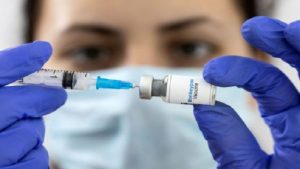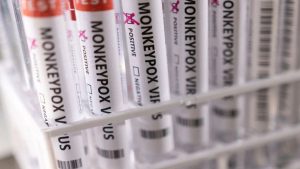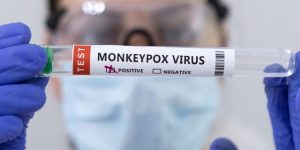Monkeypox is caused by the monkeypox virus, which belongs to the Orthopoxvirus genus and belongs to the Poxviridae family.
In May 2022, multiple cases of monkeypox were identified in several non-endemic countries. Studies are underway to further understand the epidemiology, sources of infection, and transmission patterns of the virus, according to the World Health Organisation (WHO).
The symptoms are similar to those seen in smallpox patients in the past, but less severe. Smallpox is a related orthopoxvirus infection that was declared eradicated worldwide in 1980.
Close contact with lesions, body fluids, respiratory droplets, and contaminated materials such as bedding allows the virus to spread from one person to another.
Patients with an atypical rash that progresses in sequential stages – macules, papules, vesicles, pustules, scabs – may be associated with fever, enlarged lymph nodes, back pain and muscle aches.
WHO advises that patients with suspected monkeypox should be investigated and, if confirmed, isolated until the lesions crust, the scab falls off, and a new layer of skin forms beneath.
To limit further transmission, there is an urgent need to raise awareness about monkeypox and conduct comprehensive case finding and isolation.
The world organisation says raising awareness in potentially affected communities is critical for identifying and preventing additional secondary cases.
It is unusual to find confirmed and suspected cases of monkeypox in multiple countries without a history of travel to an endemic area.
Treatment
According to the WHO, Monkeypox is being treated with an antiviral agent that was developed for the treatment of smallpox.
Monkeypox is typically a self-limiting disease, with symptoms lasting 2 to 4 weeks.
Severe cases are more common in children and are associated with the extent of virus exposure, patient health status, and the nature of complications.
The case fatality ratio of Monkeypox has historically ranged from 0 to 11% in the general population and has been higher among young children. The cessation of Smallpox vaccination campaigns globally after eradication of the disease may make some people more susceptible to Monkeypox.
International travel or trade
Based on current information, WHO does not recommend any restrictions on travel to or trade with the United Kingdom.
WHO will continue to closely monitor the situation as it evolves.

Source: WHO






